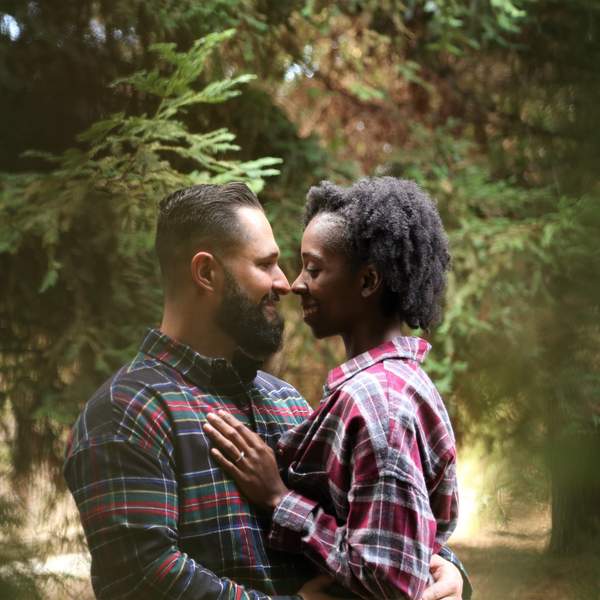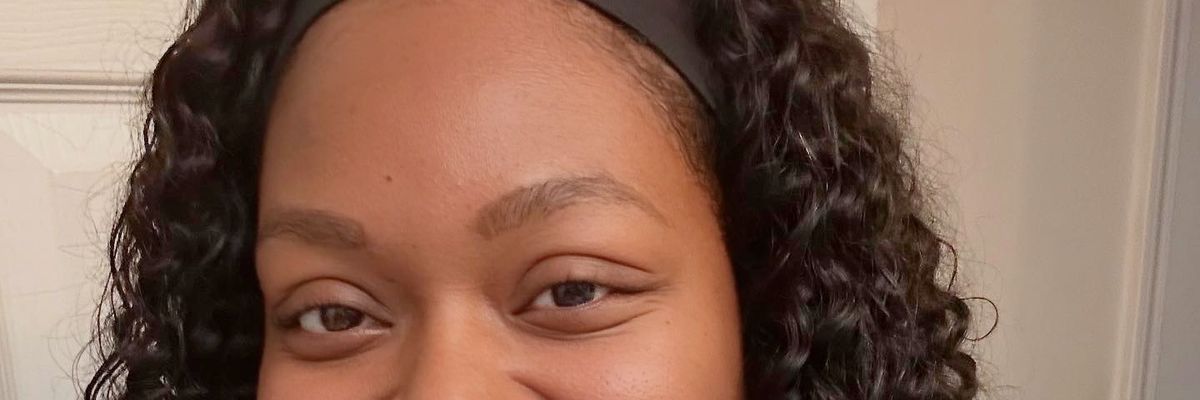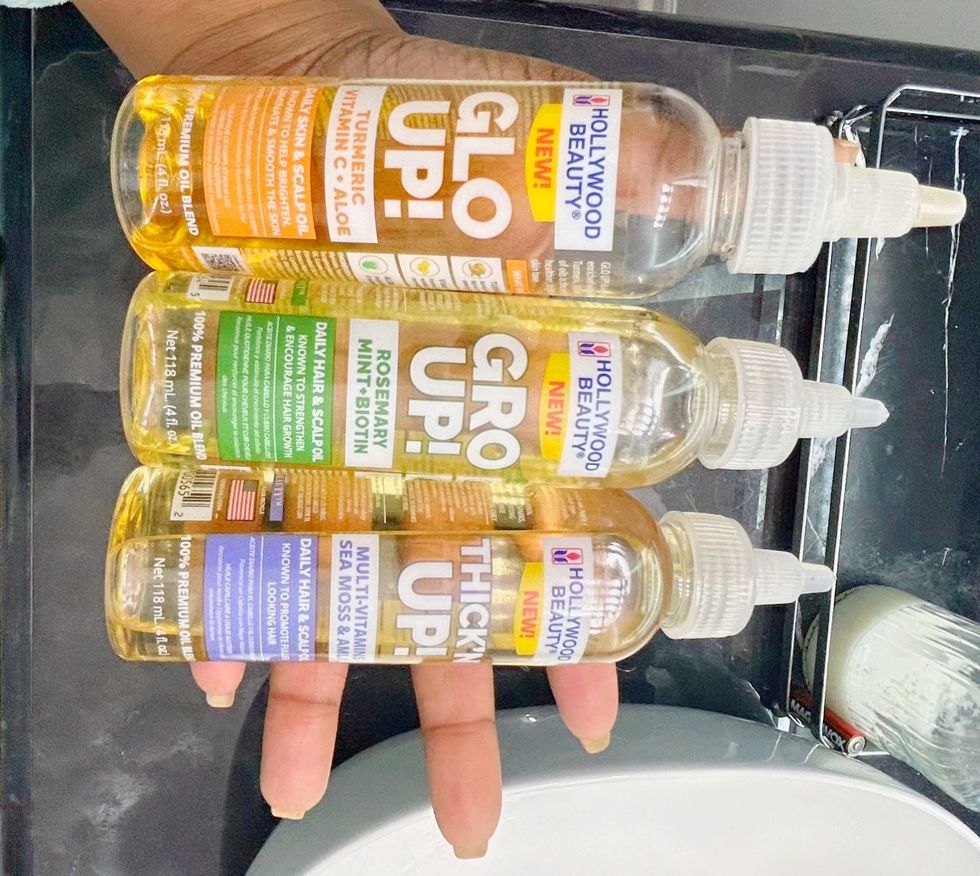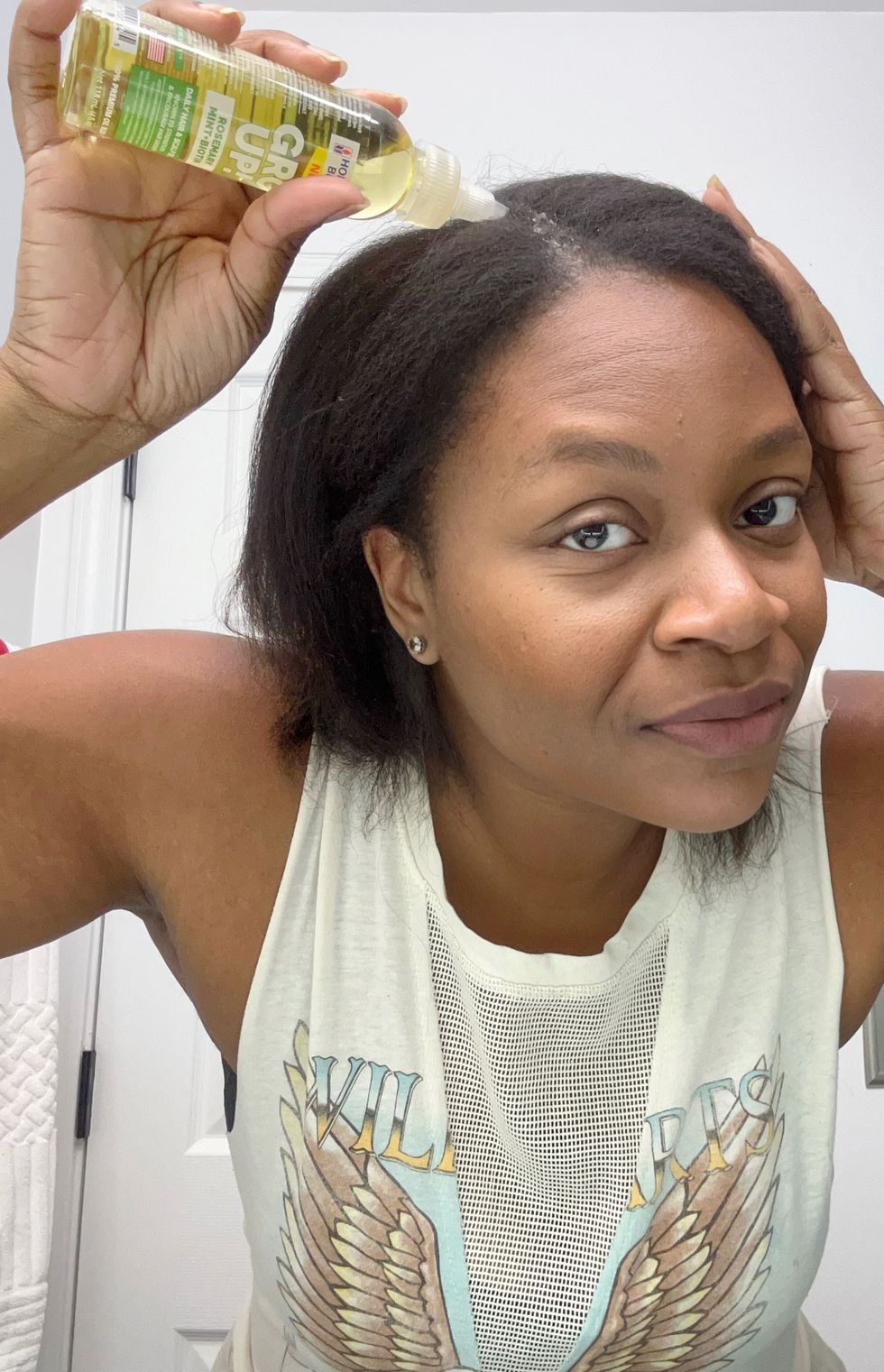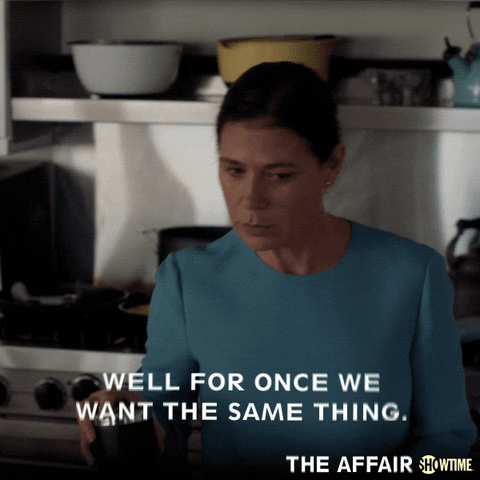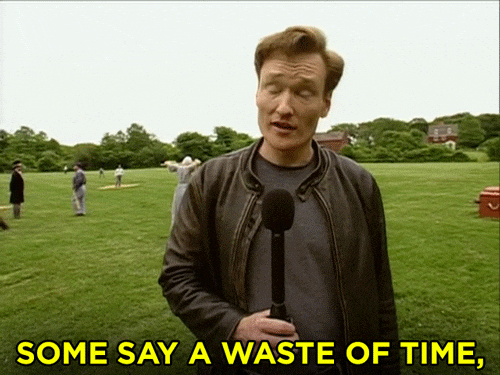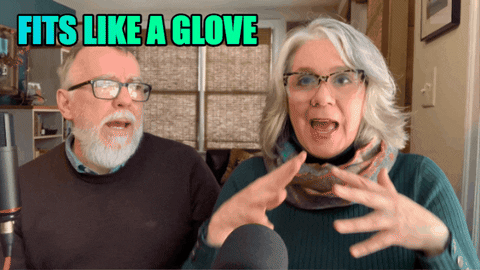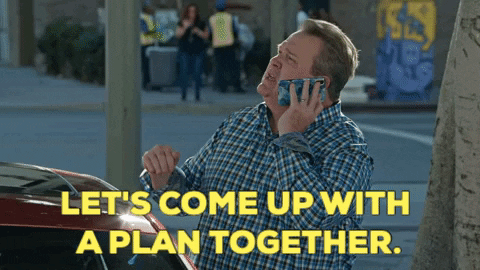OK, so here's my confession for the day. While I don't get to check either of these out on a consistent basis (probably because my mind is trying to retain brain cells), two guilty pleasures of mine are 90 Day Fiancé (the one that comes on Sundays; they've got too many now to keep up with which is which) and Love After Lockup. There really is no justification or excuse; I just think that, as someone who works in the field of relationships so much, sometimes the dynamics on there fascinate me.
Take Angela (the older white woman from Georgia) and Michael (the younger African from Nigeria) on 90 Day, for example. First, I really need there to be more deep dives done on the topic of fetishizing; yes, it is very possible for a person to be with someone of another ethnicity and still be disrespectful AF to that person's culture, if not flat-out racist. Second point—there are a lot of women out here who claim to be Bible followers, will push back on submitting to their husband (umm, even though it's in the Bible—Ephesians 5 and Colossians 2) yet will turn around and emasculate their husband to the point where they basically want him to submit to them (check out "Are You His Partner Or His Second Mama?"). That's Angela in a nutshell. SMDH.
Over on WE tv, there's a particular couple on this season of Love After Lockup that, in many ways, inspired this piece. Their names are Quaylon and Shavel. If you know anything about the show, it's about people who fall for folks who've been in prison who then try and make the relationship work, once their partner gets out. My first love was in and out of the system for years so, I get how it can happen. Anyway, when I watched an episode when Shavel spent $5,000 of her hard-earned money to get Quaylon a truck as her play-brother looked at her like "WTF?!", and I then reflected on the times when I spent a lot of my own money in relationships, along with the clients I've counseled who've done the same, I figured that now was as good a time as any to address the difference between compromising in a relationship (necessary) and sacrificing (oftentimes unhealthy). Because, unfortunately, not getting that there is a difference between the two is an epidemic that's transpiring, both on and off of the tube. (Again, SMDH.)
All Successful Relationships Require Compromise
An author by the name of Donna Martini once said something about the art of compromise (in a relationship) that I really like. She said:
"Compromise is not about losing. It's about deciding that the other person has just as much right to be happy with the end result as you do."
Shoot, this alone is one of the reasons why some people aren't mature enough to be in a relationship; they are so consumed with what they want to get and who needs to make them happy, that they don't factor in if their partner is feeling fulfilled in the process. Hell, sometimes I wonder if they even care.
So, what are some clear indications that you're good at compromising in a relationship?
Compromisers are good listeners. It's not about them always needing to get the last word in or speaking over their partner. They genuinely want to know where their partner is coming from so that communication is effective.
Compromisers are compassionate. A compassionate individual is someone who notices the suffering (or even just distress) of another individual and strives to do what they can to alleviate it. They aren't apathetic; they are sympathetic and even try to be empathetic to their partner's needs where possible.
Compromisers are humble. Humility in a relationship is a true superpower because it means that you're not interested in being right all of the time, you can admit when you're wrong, you will be quick to apologize when you've offended your partner or you made a mistake, and you're open to seeing another perspective, even if it couldn't be further from your own.
Compromisers are flexible. I was recently talking to my nine-year-old goddaughter about how she wants her future husband, wedding and marriage to be. I must say that, for her age, she was extremely eloquent. However as she was going down the list, when I asked her, "What about your husband's opinions?", she said what a lot of grown single women have said to me as well—"His opinion doesn't matter." Lord. Compromisers aren't so bossy, so rigid, and/or so determined for everything to go their way all of the time, that they aren't able to bend if it results in both people being happy and both parties coming to a peaceful resolution.
Compromisers are solutions-oriented. At the end of the day, a compromiser is all about finding solutions and cultivating peace. It's not about conceding all of the time, but it is about not being so bull-headed and opinionated that mountains come out of molehills and then those mountains are the very ones that they are willing to die on…even if that means dying alone.
Bottom line, compromisers live by the motto that they would rather that they and their partner be happy together than be right (at least in their own mind) all by themselves. Compromisers are the kind of people who tend to have lasting relationships because they know that healthy dynamics require give and take on both sides.
Sometimes BOTH PEOPLE Need to Make Sacrifices
OK, so now that we've broken down a little bit of what it means to be a relational compromiser, let's spend a little bit of time exploring what it means to go to, what some would consider to be, the extreme side of compromising—making sacrifices in a relationship. To be honest with you, sacrifice is not a dirty word. In the context of what we're talking about today, it simply means that you are willing to give up something good for something even better.
A good example of a relational sacrifice is perhaps turning down a job in one city because your partner just proposed, you accepted, and you both have really good jobs where you currently are. However, peep that I said that the man proposed marriage (and you accepted). I know that, because I've made big sacrifices for boyfriends or even situationships, and also, because I'm now a marriage life coach, I don't really jump up and down about those types of situations. Why? Because if you're willing to give up something awesome, it doesn't need to be for the hope that something better might happen. There needs to be some sort of guarantee (at least, as much as there can be a guarantee). Sacrificing for a man who pledged to marry you is different than sacrificing for a guy you've been kicking it with for a while.
That's why Shavel (from Love After Lockup) stands out to me. After dating a man in prison (which really isn't dating and, believe you me, there is nothing like getting a "jail letter" because when folks are incarcerated, they don't have much to do other than think…a lot) for a few years, the first thing she does is buy him a vehicle and prepare a place for him to stay? Meanwhile, what has he done? Hell, what is he even capable of doing? It's not about him having a prison record (we know how a lot of our Black men end up with those); it's about him needing time to readjust to society and figure out how to take care of himself before even entertaining getting married or helping Shavel raise her daughter.
See, what Shavel is doing? It's not so much sacrificing as it is taking a gamble on her relationship. She's not merely giving up something wonderful for something that can top it; it's more like she's giving all that she has, in hopes that it will pay off. And when we get to this kind of point and place in our relationship with someone, especially when they are not reciprocating with these same types of gamble/sacrifices, that's when we know that we're entering into some very risky and, to be honest, unhealthy behaviors.
Too Much One-Sided Sacrificing Is Unhealthy
When I look back on, more than half of my relationships/situationships, if there's a main thing that I regret, it's that I acted like a wife in most of them—at least to some degree—while many of them weren't even really boyfriends. What I mean by that is, that when I give of myself, I typically give my all. Whatever a man needs, I am going to figure out how to make it happen and/or support him in ways that can oftentimes cause me to neglect my own needs or wants. Then, when things don't work out, many times, I don't have much to show for it. Hmph. That's why, I actually have a shirt that says, "I don't need closure. I just need my ex to give me my money back." That's not a cute graphic tee. That's for real, for real.
And when your own needs end up going by the wayside, continually so? That's how you can know when you're sacrificing, far more than you ever should. It's when the good thing that you're giving up is actually huge chunks of yourself. It can be chunks of your checking account, chunks of your self-worth, chunks of your heart—anything that, if the relationship ended right now, not only would you be devastated, you'd also be severely in lack.
Not hurt or inconvenienced; I mean that, on some level, you would be close to destitute. When you've entered into this portion of the program, you are not merely "bending" in order to meet your partner halfway. No, what you are doing is giving up so much of yourself that it can actually break you…or break you into pieces.
So, if you're currently in a relationship and you think that what you're doing is compromising, but there is something in the back of your mind that's saying something along the lines of, "Bay-bay, you are giving up the best parts of you and nothing better is gonna take their place"—please take some steps back. You're not compromising, sis. What you are doing is sacrificing to the ultimate extreme. And again, the thing about a "good sacrifice" is it's worth it. You don't have to gamble or guess…you already know. Your partner has made sure that you do. How can you know? Because he's out here making sacrifices too.
Join our xoTribe, an exclusive community dedicated to YOU and your stories and all things xoNecole. Be a part of a growing community of women from all over the world who come together to uplift, inspire, and inform each other on all things related to the glow up.
Featured image by Unsplash
- How To Not Lose Yourself In Love - xoNecole: Women's Interest ... ›
- The Difference Between Loving A Man & Being "Needy" For Him ›
- Is It More Important To Be Respected Or Liked? - xoNecole ... ›
- Are You Compromising, Sacrificing, Conceding or Resenting ... ›
- 5. Marriage Necessitates Sacrifices That Dating Does Not - xoNecole: Women's Interest, Love, Wellness, Beauty ›
- Does Love Involve Sacrifice or Compromise? | Psychology Today ›
- What is the difference between compromise and sacrifice? - Quora ›
- What is Sacrifice? What is Compromise? | Relationship Tips ... ›
- Sacrifice Vs. Compromise In A Relationship: Here's The Super ... ›
- Healthy Relationships: The Art of Compromises, Not Sacrifices ... ›

